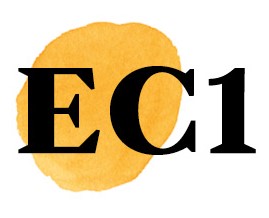“Violence is a disease and has no place in Islington,” declares John Woolf, the politician working to ensure community safety.
By Julia Gregory, Local Democracy Reporter

Cllr Woolf said the council is commited to working with communities to prevent violent crime which causes so much damage to those affected by it.
Islington was left reeling after teenager Deshaun Tuitt was fatally stabbed in Highbury Fields witnessed by stunned onlookers this summer. He is amongst 11 teenagers who have been stabbed to death in London this year.
The council has launched its wideranging community safety strategy which will see more people join the parent champions scheme to work with children and families, going into schools and talking to young people about the dangers of violence.
“A key part of the parent champions is listening and working in collaboration with teachers and giving parents the tools to raise awareness amongst their children of knife crime and exploitation,” said cllr Woolf.
It is also recruiting a young women’s worker to support women and girls affected by gangs or exploitation and work with young women individually as well as speaking to schools and community groups to raise awareness of the risks.
Other steps include continuing the work to take weapons off the streets.
So far more than 2,000 weapons have been taken off the streets of Islington through collection points at the knife bins across the borough.
Plans also include getting more businesses to join the 120 shops and restaurants signed up to the Safe Haven scheme. It works by offering support to people who feel threatened, harassed or in danger – such as by calling police or family and friends and letting the person asking for help inside, whilst excluding anyone they feel threatened by.
Other work includes building on the violence against women and girls strategy which sees housing teams help spread the message, and work to help prevent domestic violence. It also sees partnerships such as the No More Red campaign with Arsenal FC and schemes such as Ask for Angela which involves pubs and clubs offering support to people who ask staff for Angela.
The strategy for the next five years was drawn up after 700 residents responded to the council’s Safer Spaces consultation to hear about their priorities.
Cllr Woolf said the strategy, which is required by government, sees a public health response to violence and sees the council working with police and other partners to clamp down on violence on the streets and behind closed doors at home. He said: “Devastating events sends such ripples out to families and communities, it’s devastating and it really takes its toll.”
He said violence like disease “is contagious” and he wanted to ensure people feel safe in Islington. “If anyone feels unsafe in the borough that affects us all.
“Violence is not an inevitability. No one is safe until we are all safe.”
Whilst crime in Islington dropped by 2.4% between 2020 and 2021 town hall bosses said they were aware of the impact of the pandemic which reduced some crimes. During the same period sexual offences went up 29% and domestic violence up 1%. The borough saw a 12.8% drop – or 56 fewer – knife crimes for the same period.
However Islington is still the tenth highest London borough for knife crime.
Cllr Woolf said: “violence is very complex”, however the impact of the drugs trade plays a part.The council’s violence reduction report describes the drugs trade as “a driver for serious violence and crime.”
The strategy aims to tackle the ways young people and vulnerable adults get exploited and used to act as couriers in the borough and across county lines by the drugs trade. According to the Met Police 70% of organised crime groups in Islington are involved in drugs and 51% in acquisitive crime such as theft.
The council said “a relatively small number of individuals are directly involved” but 31% of residents “feel that gangs are a problem”.
The council pledges to work to prevent those at risk, often from deprived areas or excluded from school, from getting caught up and giving those involved a safe way out.
Work also includes focusing efforts on hotspots – places where the council has received six or more calls. There are a handful at any time- currently eight – and cllr Woolf said work then goes into making those places safer.
He said the number of hotspots, often round transport hubs, has dropped.
“We are not complacent. We are working together to make our communities feel safe,” he said.









